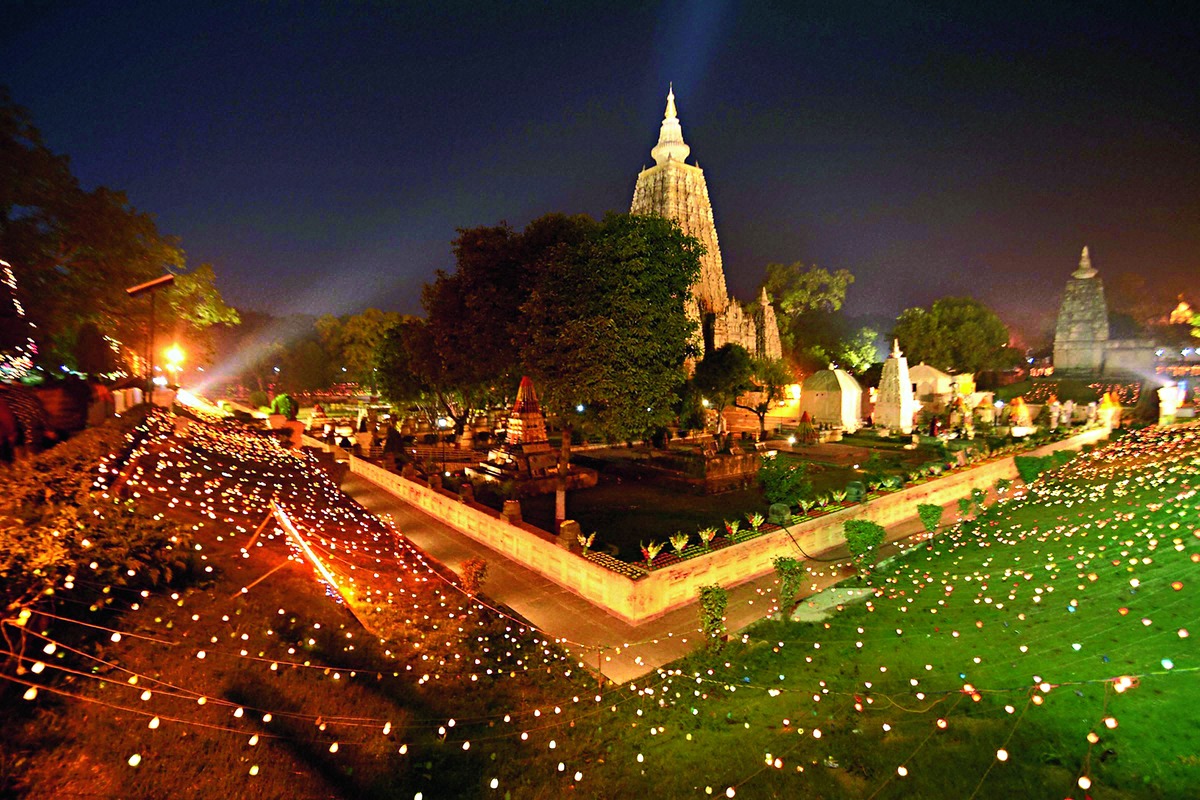
Patna: Around 50-60kg flowers offered by devotees at Bodhgaya's Mahabodhi Temple daily that goes waste would now be converted into natural dye.
The natural dye would be later used on khadi fabrics to be sold to the devotees on the temple premises at an economical cost.
The Bodhgaya Temple Management Committee (BTMC) has signed a Memorandum of Understanding (MoU) with Patna-based organisation MATR and Calcutta-based organisation Because of Nature, which would implement the project to be known as "Happy Hands Project". The project would be launched on September 15.
The BTMC has signed a two-year contract with the organisations but it might increase the duration of the project but it depends on how successful the project turns out to be, said BTMC officials.
District magistrate Abhishek Singh, who happens to be the ex-officio chairman of the Bodhgaya Temple Management Committee, said: "The purpose of the project is to utilise the flowers being offered at the Mahabodhi Temple during prayers and decorations that were left unused and discarded after use and to convert them as natural dye on khadi fabrics to make deferent ranges of khadi products and also to bring sustainable employment to the people through natural dyes on khadi made in Bihar. As per rough calculation, around 50-60kg flowers are being used every day at the temple during lean pilgrim season and 300-400kg flowers are being used during peak season - particularly between December and February. The Happy Hands Project aims to employ around 50 underprivileged women to create natural dyes by using the discarded flowers." He said the agencies concerned were taking help of an Australian in implementing the project.
In another development, the Bihar Rajya Pul Nirman Nigam Limited (BRPNNL) would now make a masterplan for the restoration and development work to be carried out on the Mahabodhi temple campus. An MoU has been signed between BRPNNL and BTMC on August 31. BRPNNL managing director Umesh Kumar and Gaya district magistrate-cum-BTMC chairman Abhishek Singh signed the MoU.
"The Archaeological Survey of India (ASI) looks after the restoration work of the old pillars of the temple and its restoration work is limited up to 100 metres area of the temple but after the 100-metre mark, the state agencies look after the restoration work. The restoration work after this 100-metre mark would now be looked after by BRPNNL in which restoration of the boundary wall among others would be taken up. Among the development works that would be initiated by BRPNNL includes renovation of the existing meditation park and adding facilities for pilgrim such as making of May I Help You counters for pilgrims among other facilities," said Singh.
He added: "The BRPNNA will provide technical services for the architectural designs, structural planning and execution of the major projects related to maintaining, restoration, landscaping and development works of the temple assigned to them by the BTMC."











